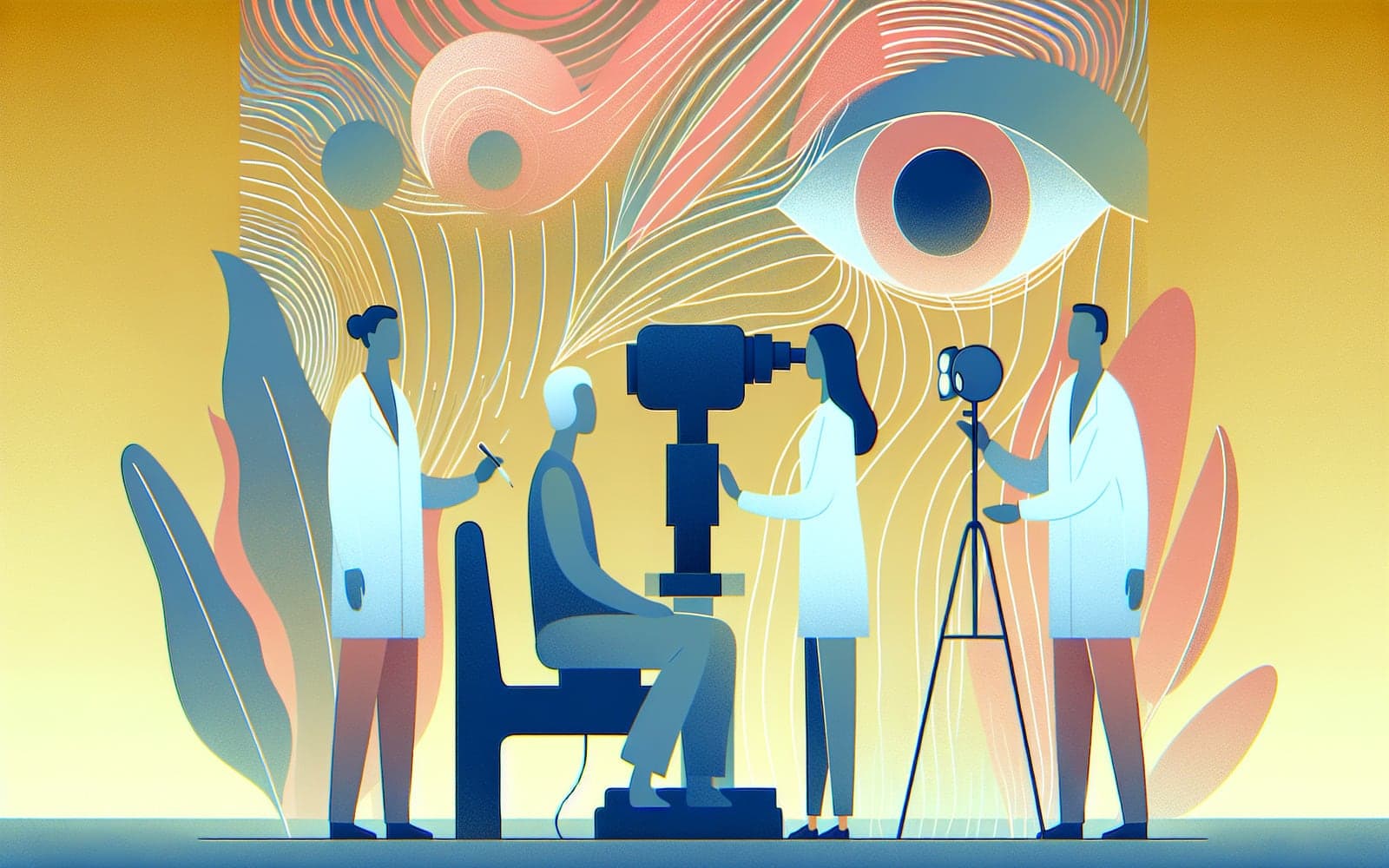The Eye Exam That Could Save Your Sight: What to Expect When Screening for Diabetic Retinopathy
Published: Mar 04, 2024
Regular eye exams are crucial for detecting diabetic retinopathy early. Understanding what happens during these exams can help you feel more prepared and at ease.
Contents
The Dilated Eye Exam: A Closer Look
The key test is a dilated eye exam. Eye drops widen your pupils, allowing the doctor to see more of your retina. It's like opening the curtains wide to inspect a room thoroughly. This exam can detect early signs of retinopathy before you notice any vision changes.
Advanced Imaging: Seeing the Unseen
Your doctor may use special cameras to take detailed images of your retina. One common test is optical coherence tomography (OCT). It's like creating a map of your retina's layers. These images can reveal subtle changes that aren't visible during a standard exam.

Fluorescein Angiography: Tracking Blood Flow
In some cases, your doctor might recommend a fluorescein angiography. A special dye is injected into your arm and photographs are taken as it flows through the blood vessels in your retina. This test is like adding a contrast dye to see where pipes might be leaking in your plumbing system.
Frequently Asked Questions
Usually annually, but your doctor may recommend more frequent exams.
They might sting briefly, but are generally well-tolerated.
A comprehensive exam usually takes about an hour.
Your vision may be blurry for a few hours, so arrange a ride.
Key Takeaways
Regular eye exams are a vital part of managing your diabetes and protecting your vision for the long term.
Ready to schedule your comprehensive eye exam? Let Doctronic help you find an eye care provider and set up your appointment.Related Articles
References
American Diabetes Association. Diabetes Care 2024; 47:S179.
DCCT/EDIC Research Group. N Engl J Med 2017; 376:1507.
Always discuss health information with your healthcare provider.